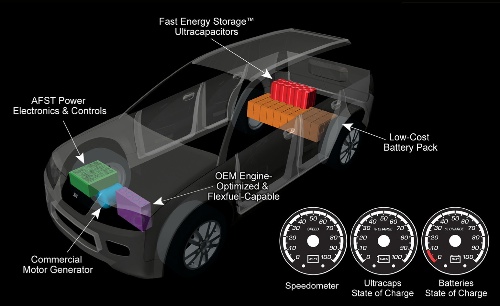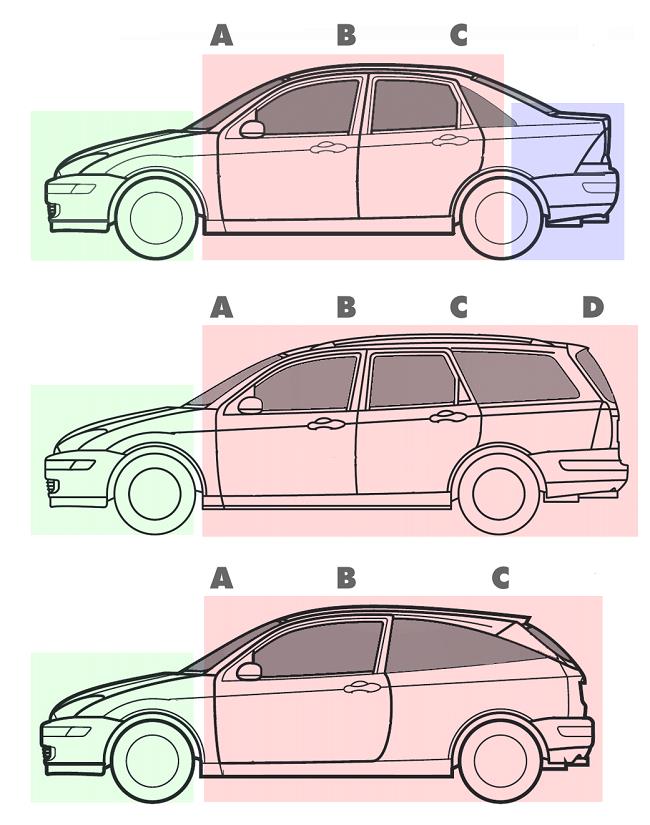Owning a hybrid car means you reap the benefits that come with having an efficient vehicle that uses a combination of fuel and electricity. As with any car, hybrid drivers need to follow their owner’s manual to ensure maximum performance and longevity. The manual should include a schedule for regular maintenance as well as upkeep procedures that are unique to hybrids. Examine this list of seven ways to ensure you’re doing a good job of maintaining your hybrid car and its systems.
Image via Wikimedia
Focus on Tires
First, consider putting tires with low rolling resistance on your hybrid. These special tires don’t grip the pavement with as much strength as other tires. That means there’s less work for the engine to do in getting the vehicle moving. Tires with low rolling resistance also are less demanding on the engine during acceleration and let you maintain your speed for longer periods of time when you’re cruising. The bottom line is that changing to these tires improves your hybrid’s fuel efficiency.
Next, put yourself on a schedule that requires you to check your hybrid’s tire pressure at least once a month. If your tires aren’t inflated to the recommended pressure, give them more air and watch your gas mileage improve right away.
Change the Oil and Filter
Whether you drive a traditional automobile or a hybrid, oil changes and replacing the air filter are important aspects of the car’s routine maintenance. These days it’s not just hybrid vehicles that bank impressive fuel efficiency.
The new Mercedes GLK class SUV is rated for 33 miles per gallon on the highway – a far cry from its bulky ancestors. While the manufacturers of many traditional vehicles, including Mercedes, recommend changing the oil every 3,000 miles or so, hybrids usually need an oil change every 5,000 miles. It all depends on your driving habits and the road conditions. Make it a habit to check your oil often and replace it when it begins to get dirty.
If you want to change the oil yourself, remember that many hybrids have different oil weights, so check the specifications of the recommended oil before heading to the store. Another consideration for the do-it-yourself crowd: Because hybrids have a gas engine and electric motor, you need to be careful to avoid touching parts that could shock you. Typically, those wires and parts are encased in bright orange covers to warn you of the potential danger.
Keep Tabs on Your Brakes
Like any vehicle, a hybrid has a brake system that needs routine checks. These vehicles use a type of brake that’s different from other cars on the road. Regenerative braking captures the kinetic energy that would otherwise be lost as it turns into heat when you slow down. Not only do the brakes collect the energy, but they use a complex system to convert it into electricity that increases your battery’s charge.
Because there’s less heat produced when a hybrid slows down or stops — the brake pads, rotors, and other elements of this system last much longer than they would on a traditional vehicle that relies exclusively on friction to brake. Hybrids do have traditional braking as a kind of alternative that kicks in when regenerative braking doesn’t give enough stopping power. So, it’s important to have the entire braking system checked on the schedule your owner’s manual recommends.
Monitor the Battery Pack
Image via Wikimedia
Batteries for hybrid cars are far more expensive than batteries found in non-hybrid vehicles. They can cost upwards of $2,000. Because of the key role they play and the expense, batteries for hybrids are made to last for most of your car’s life. Still, the ability of a hybrid to deliver exceptional fuel efficiency relies on optimal performance from the battery. In some cases, hybrids need to have their batteries conditioned or even rebuilt. Through this process, the battery can regain some of its capabilities.
While traditional cars rely on engines to give them maximum power, hybrid systems rely more strongly on power generated from the battery. For this reason, it’s important to think about the impact an aging battery has on your hybrid’s fuel efficiency and decide if it’s time for a rebuild, a conditioning process, or even a new battery.
Fuel Injector Cleaning
Gasoline vapors leave residue in the fuel injector. These deposits can form a hard varnish that may eventually clog the injector and compromise its performance. One way to combat this problem is to clean this part of your car to reduce build up. Though this is a process you can do yourself, it requires some specialized tools such as a fuel catalyst. For this reason, you may find it’s more cost effective to let a professional handle the cleaning process.
Schedule Tune-Ups
Make sure you take your hybrid to a mechanic who has the experience and specialized training for working on hybrids. These vehicles have a complex drive train that brings the transmission, electric motor, and gas engine together. So, a mechanic needs to know how to handle these interconnected elements to avoid creating problems. A tune-up may include changing spark plugs, replacing the transmission fluid, and checking major systems for potential problems. Adhering to the recommended schedule for tune-ups decreases the chances you’ll encounter more serious problems in the future.
Evaluate Cargo for Unnecessary Weight
Image via Wikimedia
From time to time, it’s a good idea to look at how much extra load your hybrid is carrying. The more weight your car carries, the harder it has to work to move. For this reason, avoid leaving heavy items in your car, on your car, or in the trunk.
Common items people keep in their vehicles that add weight and reduce fuel efficiency include tools, donation items, and baby equipment such as strollers. It’s one thing to put these items in your hybrid for a single trip. It’s another thing to carry them around with you all the time. Promptly remove bikes you attach to the top or back of your vehicle once you’re done with them since they add weight. By evaluating your cargo on a regular basis, you’ll ensure you’re getting the best fuel efficiency possible.
By performing the proper maintenance, you extend the life of your hybrid and enhance its ability to provide outstanding fuel efficiency. Failing to follow the recommended maintenance schedule puts your car’s sophisticated systems at risk, creating potential problems that impact gas mileage and overall performance.













